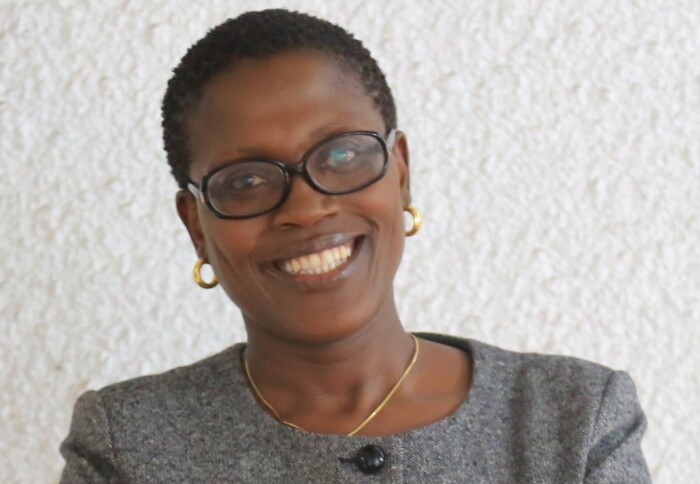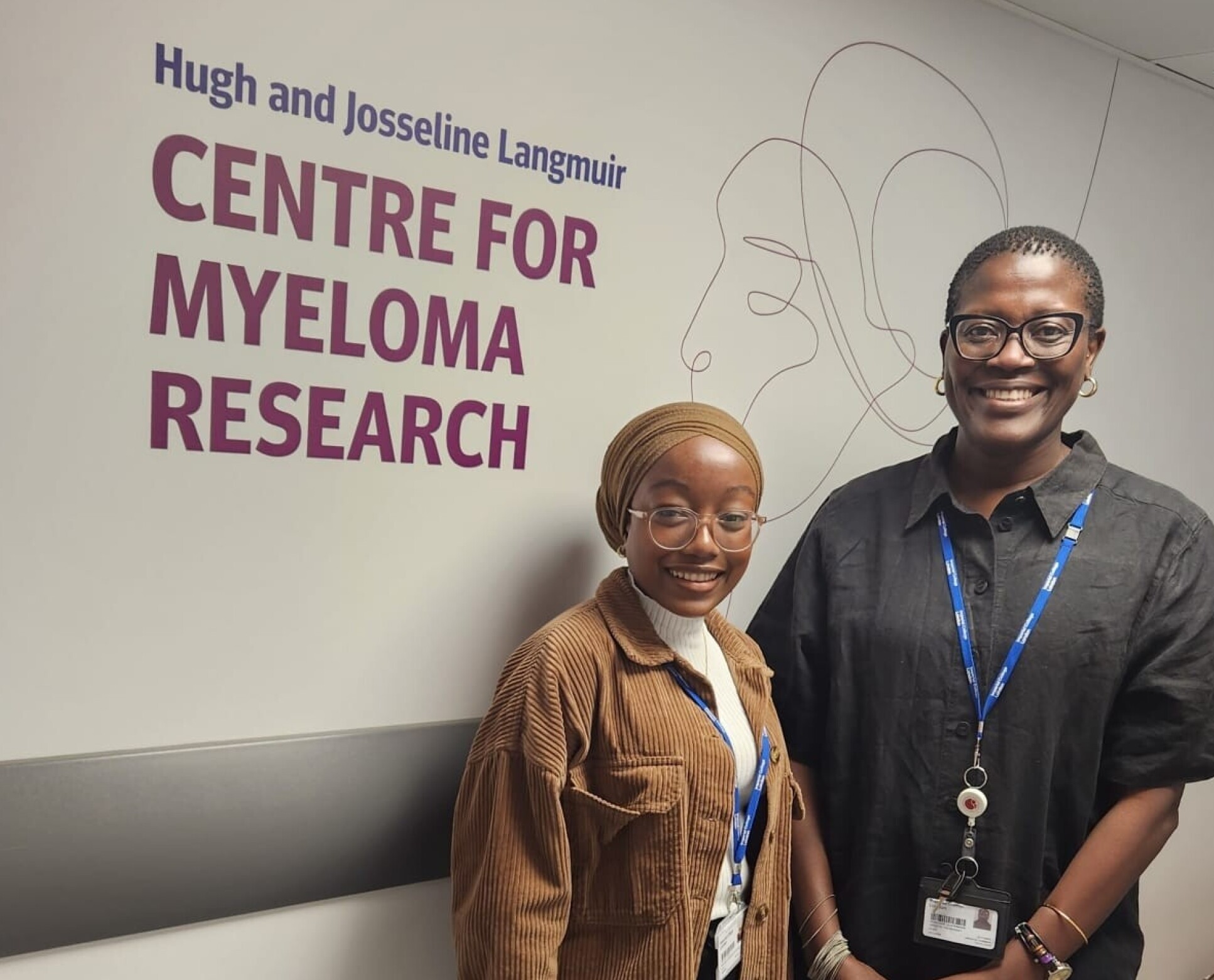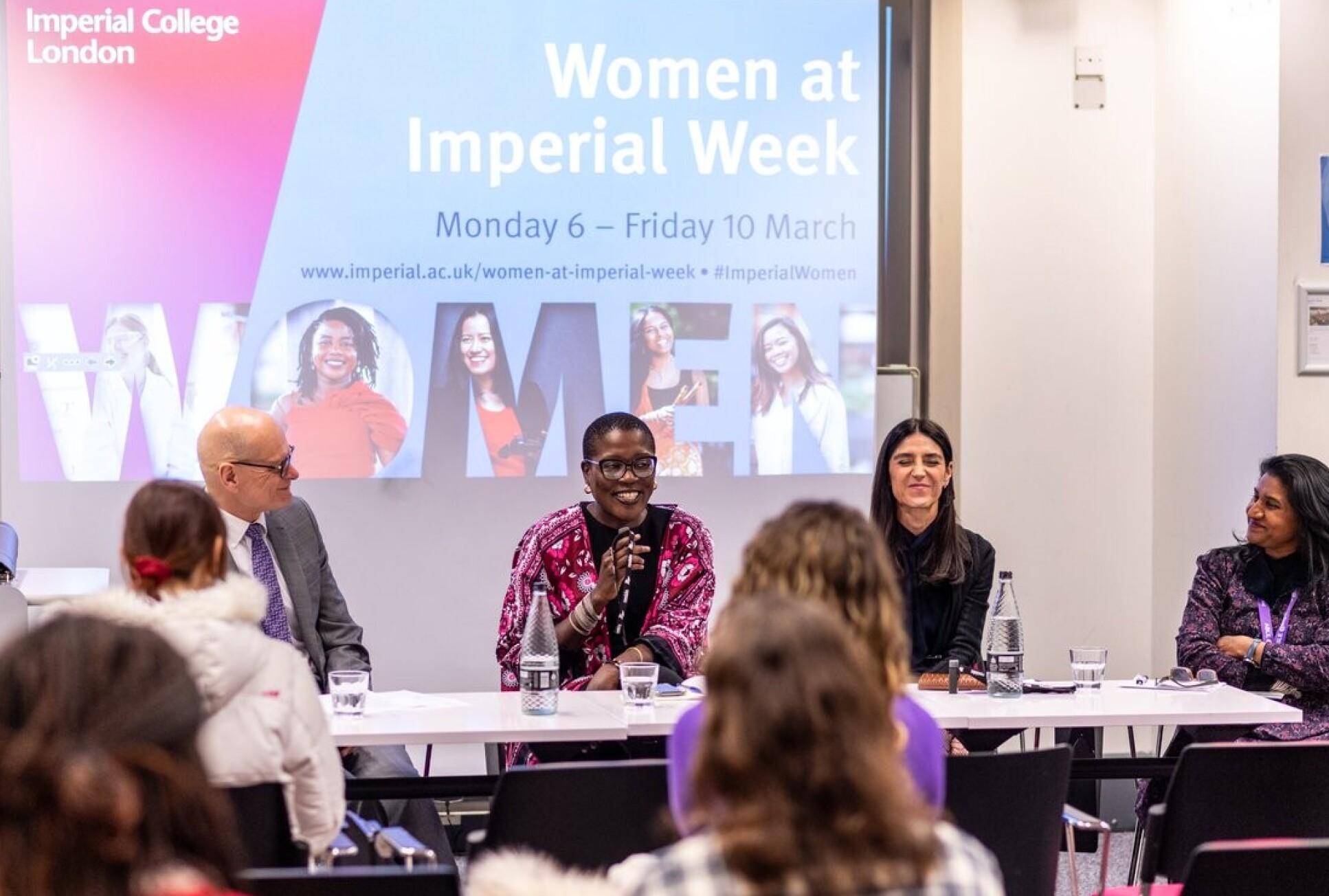‘When I think about the burden of sickle cell disease - it keeps me up at night’
by Meesha Patel

Prof Julie Makani, Provost's Visiting Professor of Haematology
For World Sickle Cell Day we interview Prof Julie Makani on her career so far, African science and the growing interest in Sickle Cell Disease.
Professor Julie Makani joined Imperial College London as Provost's Visiting Professor of Haematology in April 2023, and is Physician Scientist in the Department of Haematology and Blood Transfusion at Muhimbili University of Health and Allied Sciences (MUHAS) in Dar es Salaam, Tanzania. She is known for her research on sickle cell disease in Africa and in particular her work in Tanzania, which has the fifth highest incidence of disease in the world.
Her research focuses on haematology and blood transfusion in sickle cell disease, how genomics can be used to understand the disease to improve health, and how gene therapy can be used to cure disease.
Currently she is a Principal Investigator of the Sickle Cell programme in MUHAS and Sickle Pan African Research Consortium (SPARCO) Clinical Coordinating Centre (CCC) within SickleInAfrica network. She is also Site Principal Investigator for MUHAS for H3ABioNet and Co- Principal Investigator SickleGenAfrica. Prof Makani will also be working with Genomics England’s Sickle Cell Advisory Board which forms part of their Diverse Data Sickle Cell programme.
On World Sickle Cell Day, we spoke to Prof Makani about her motivations to pursue this field of research, what she hopes to achieve while at Imperial and the growing scientific importance of sickle cell research.
Tell us more about your career - where did it all start for you?
I trained in medicine at MUHAS, graduating in 1994 and did a student elective at the Royal Free Hospital. While at this placement I decided that I would like to specialise in internal medicine. At that time in Tanzania there were limited opportunities for specialist training as people were encouraged to go into public health. There also were no active hematology specialisation programmes because there were only two hematologists in the whole country.
"I think it is very important when you are working on a disease to work closely with the people who are affected by it." Prof Julie Makani Provost's Visiting Professor of Haematology
Fortunately, there was a postgraduate course in internal medicine at the Royal Postgraduate Medical School, in the UK which then became part of Imperial College School of Medicine. After doing this, I went back to Tanzania mainly because I wanted to establish a clinical and scientific career in Africa, rather than be based in the UK. I received a training fellowship from the Wellcome Trust and set out to establish and strengthen the sickle cell and haematology service in Tanzania, establish a research career and develop training programmes. It was an intense period for me because I was doing many things. In addition, I think it is very important when you are working on a disease to work closely with the people who are affected by it, so I also got involved with advocacy and working with patients to try to raise awareness about the disease.
Why was your focus on sickle cell disease?
Three of my cousins were born with sickle cell disease of different levels of severity, and all of them died. When I think about the burden of disease - it keeps me up at night. I realised there will always be competing priorities and tension between the health services, research, and teaching and what I needed to do was focus on one thing, so I focused on sickle cell disease.
Eleven years ago, I participated in a programme to strengthen genomic research in Africa called H3Africa, led by the African Society of Human Genetics, Wellcome Trust and NIH. I was doing my PhD part time to be able to continue to set up this programme and I was focusing on phenotyping and working with colleagues to strengthen the bioinformatics capacity. I then set up the Sickle CHARTA (Sickle Cell Consortium for Health, Advocacy, Research and Training in Africa), which started off as three countries; Ghana, Nigeria and Tanzania which was then expanded to seven countries.
What do you hope to achieve during your time as a Provost’s Visiting Professor at Imperial?
I hope to work with colleagues here to develop a platform for coordination, health, advocacy, research, and training in Africa (CHARTA). I will strengthen research using the genomics platform established with H3Africa and share our experience and learning to help people apply this to other conditions such as Multiple Myeloma, Systemic lupus erythematosus (SLE) and Breast Cancer. By being here, I hope to establish new partnerships and create potential opportunities for collaboration and knowledge exchange.
Another aspect I want to be involved in is health policy, being involved at different levels of advocacy and trying to make decision makers understand why they should invest in sickle cell disease. From an African perspective sickle cell disease has the biggest burden in terms of prevalence, morbidity and mortality, and it's curable with gene therapy.

Do you think sickle cell disease is getting recognition globally as an important issue?
There's definitely been an increase in interest. Our advocacy efforts have helped to raise awareness, but it's attention now is because it's a model disease for genomic research. Sickle cell disease is caused by a single gene mutation, so theoretically if you can edit that mutation you can cure the disease.
"You can’t have gene therapy which is developed outside of Africa because it is inappropriate from an equity perspective." Prof Julie Makani Provost's Visiting Professor of Haematology
The thinking is that if we can cure sickle cell disease, we could then apply the knowledge to other conditions which are more complex. What I feel strongly about is that this has got to go hand-in-hand with improving the care of sickle cell patients using the interventions that are currently available. For example, you can’t have gene therapy which is developed outside of Africa because it is inappropriate from an equity perspective. Even in high income countries, there are huge equity issues when it comes to access and care of sickle cell patients, so you can’t address just one thing. We need to have an integrated approach and we’ve got to engage patients. The patients have been disenfranchised and neglected, so they must be sitting at the table so that they can say what is important to them and what is not.
You mentioned wanting to return to Africa to continue your research – can you explain more about that?
I think this is an important aspect of the visiting professorship. In terms of training and knowledge exchange at early career level we’ve got several successful models for this in Africa, so people don’t have to leave. We’re still strengthening mid-career level development. What is missing is the senior level career development and this is where the Provost’s Visiting Professorship is great because it allows senior clinicians or scientists to go somewhere to train, think and reflect. You can deep dive into a new area or strategise and then go back to your institution. This makes partnerships more equitable because it is with other senior fellows, rather than researchers coming from the UK to teach us in Africa – that dynamic is very skewed.

What advice would you give to other researchers who are starting out?
I use this expression to my colleagues, that the process of research is learning, unlearning and re-learning. We need to have the humility and willingness to learn from others and realise you need to re-think what you know.
I would also say you should pursue what you want to do. When I wanted to study haematology I was told ‘you should be studying infectious disease because you come from Africa’. I would say, don’t feel pressured if you are a young scientist or clinician in Africa. If you want to do a particular field of study – do it.
Imperial College London's Provost’s Visiting Professor (PVP) Programme, has been established to improve the diversity of our community by bringing to Imperial leading academics who will contribute to the community through scholarship, teaching and programming aligned with their research.
To learn more about Genomic England's priorities for Sickle Cell Disease, listen to their podcast.
Article text (excluding photos or graphics) © Imperial College London.
Photos and graphics subject to third party copyright used with permission or © Imperial College London.
Reporter
Meesha Patel
Faculty of Medicine Centre
